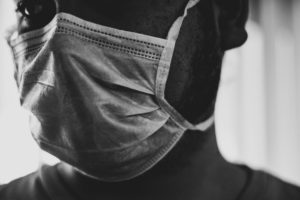The continued Covid-19 pandemic has affected everyone’s approach to social life in various ways. Whether dealing with frigid temperatures or few hours of daylight in Winter, your thoughts of going outside are polluted with a checklist of preparations and dangers that may be present.
This can compound to a “learned agoraphobia,” or fear of entering crowded or open spaces as you stay inside and cope with the changing world outside. However, this mentality can come with its own risks and unhealthy coping strategies. As your social needs are not met and self-isolation becomes prevalent, the use of drugs or alcohol to pass the time creates a dangerous precedent for addiction as a result.
The Mental Effects of the Pandemic
Covid-19 has been a staple concern of daily life for two years now, and its constant mutations and developments have caused even more complications in battling the virus. Between the delta and omicron variants, there can be a lot of uncertainty about your safety when attending social functions. With pockets of the population still shunning vaccination efforts, it can also be difficult to know if any place is truly safe for all involved. You may consider who is unvaccinated, who is carrying the virus, and what safety precautions are being taken to ensure your safety in any kind of public space.
Even thinking about the overwhelming factors associated with the virus can be difficult to process, either from the dangers present or birthed from a constant sense of uncertainty. Self-isolation tendencies were created from quarantine practices and otherwise created fear of the invisible that may be lurking outside. Going out and forgetting your mask can cause concern, and as a result, it is common that the uncertainties of social functions are cause for them to be passed over in favor of staying inside.
However, during the winter months, it is also expected that you find regular outdoor activities compromised as a result of the season, especially when it comes to activities such as hiking, jogging, or biking. All of this culminates into a mentality where you can feel both physically and emotionally cut off from your community or loved ones, which can have many negative repercussions on your mental health.
Isolation’s Effects on Substance Use
Quarantining and self-isolation as precautionary practices are essential to battling the effects of Covid-19 and its variants. However, sustaining this kind of “survival” state of mind for two years and counting is incredibly taxing. These feelings of fear and uncertainty can embed themselves into your mind. Staying inside and feeling self-isolated can cause a high buildup of stress as well.
The unavailability of vacations can take a heavy toll and create an excess amount of downtime within your home. To pass this time and cope with this stress, the use of addictive substances is a joint development. Drinking alcohol or using drugs can become common, as you do not necessarily have to worry about going out in public, and are instead confined to your own four walls. However, two years later, these destructive habits and continued stresses continue to build, developing these habits into addiction.
Remote work and a compromised regular schedule can also impact your use of addictive substances. You may feel that engaging with these substances has fewer repercussions or harmful effects while they help quell the stresses, anxiety, and depression that may fester in your isolated state. Boredom can be another major catalyst to the use of addictive substances. The buzz or high from addictive substances can be a readily available alternative to typical coping strategies.
Addiction as a Dangerous Disease
Regardless of the reasons behind your use, this prolonged and dangerous relationship with addictive substances can have many adverse effects on your body and mind. These effects can present in unhealthy and volatile emotional states while compromising your ability to readjust your lifestyle once restrictions become lifted. Even if you are not drinking or using drugs in a public setting, these substances’ impact on your mental and physical health is still just as prevalent. Seeing them as a solution to uncertainty or fear can create an unhealthy, dangerous relationship.
Addiction is not something that develops solely in a public setting. Rather, it is a personal struggle. The continued effects and uncertainties resulting from the pandemic can create the need for you to evaluate how addictive substances may have slithered their way into your life. You have the option to choose healthier outlets you may once have enjoyed that bring much-needed peace and serenity to your life.
Covid-19 has caused many to turn to drugs or alcohol as an alternative for coping strategies, or to cope with the newfound stresses and uncertainties that the virus presents. However, this also creates a dangerous situation, and addiction as a result of this unwillingness to go outside and unavailability of normal social outlets is a serious concern. At Avalon Malibu, we understand the unique mental, emotional, and physical effects that the continued Covid-19 pandemic has created, as well as the prevalence of addictive substances to cope with a new, compromised social lifestyle. Your time with us can be personalized to address the unique ways the pandemic has affected your life. We will also address the coping strategies it has created to form a plan that is right for you and your goals for recovery. From detox to residential care and outpatient programs, we can help you each step of the way. Call us at (844) 857-5992.











